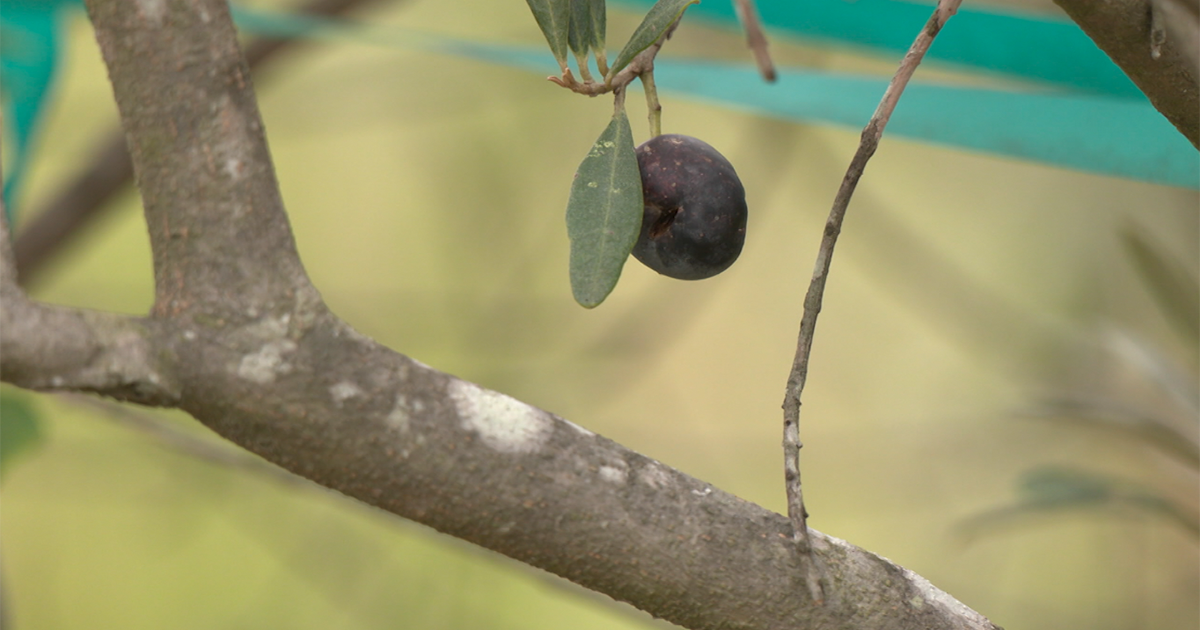Eastman, GA
While it might be relatively new to the scene, olive production here in Georgia has taken off over the past decade with the state accounting for more than nine hundred tons of olive oil every year. And that growth in popularity can be attributed to farms like Five Otters in Eastman, which is run by a pair of first-generation farmers.
“I saw the fact that Georgia was trying to have a new industry with olives, and I read about it in the Farmers and Consumers bulletin and saw pictures of an orchard that they were talking about, and I thought, I want to do that. I was retired and I needed something to do, and I love to learn and I love olive oil,” says Sharon Cobb Flanagan, Owner of Five Otters.
Even though this year’s crop was affected by the late winter freeze, there is somewhat of a silver lining to the decrease in production.
“About sixty gallons, which is really low. However, it’s a lot higher than last year. So, I’m very, very thankful,” says Flanagan. “I had some large olives and some small olives because I was told I had double flowering. So, there’s a good thing about small olives. So, I wasn’t concerned about the taste. The smaller the olive, the better the taste is going to be for my taste buds.”
That taste was recently recognized with a gold award from the prestigious NYIOOC World Olive Oil Competition. It’s an honor that literally left her at a loss for words.
“I was just silenced because it was my second harvest. You have to do everything almost perfectly, so, getting that gold award is something I can’t explain it,” says Flanagan.
Unlike many of the larger operations, Five Otters hand picks their crop and allows for a little more spacing between trees in order to maximize pollination.
“The pruning process is extremely important. These trees pollinate by wind which is why I like to prune them where they’re open kind of conical kind of like, close to but not quite like a peach tree. That way the wind gets through it,” says Flanagan.
Even though starting up an operation like this on your own might seem daunting, Cobb Flanagan says it’s something she really embraces and thinks others should also look into.
“I would highly encourage it. You might run into some hurdles but just get over that hurdle. And just remember when you first started your other career, you probably had some hurdles. You reach forks in the road. You go one way or the other. And it’s the same thing with farming here. Do I do this kind of tree, or do I do that kind of tree? Do I try this one or try that one. If you like research, farming. If you like to watch things grow, farming. If you like to eat, farming,” says Flanagan.

